
92 posts
Latest Posts by darthvoxpo - Page 2






H.G. from The New York Times comment section:
“I saw this. In Detroit, a lot of folks who would normally support Hillary, were passing around inflammatory memes of BLM, the incarceration rate under Bill, and a lot of anti-Hillary invictives. It spread like wildfire on fb. Conversations sprouted about the Dems taking the black, inner city vote for granted and branched into Native American/Black eradication, Bill’s “black love child”, even anti-vax - the memes got louder and more outrageous and arguments broke out. Folks talked about writing in for Bernie or Jill Stein. I was stunned because Detroit has always been a place where the Dem message was clear; the was a black slate, union slate…issues were discussed…the church ladies voted and plenty of folks followed suit. This was totally upended.
And in the end - 70,000 less Detroiters showed up for Hill than for Obama - in a state Trump won by 10,704 votes.”
——–
USA Today:
“Russia’s Internet Research Agency “launched an extended attack on the United States by using computational propaganda.” More than 30 million people shared content from the Internet Research Agency on Facebook and Instagram from 2015 to 2017.
The Internet Research Agency operated a “troll farm” based in Russian President Vladimir Putin’s hometown that employed hundreds of English speakers with “a strategic goal to sow discord in the U.S. political system, including … supporting the presidential campaign of then-candidate Donald J. Trump and disparaging Hillary Clinton,” according to the indictment.
The Oxford report says the Russian trolls’ efforts focused on a few main objectives: pushing African-American voters to boycott the election and giving them misinformation about how to vote; getting Latino voters to distrust the U.S. government; “encouraging extreme right-wing voters to be more confrontational”; and spreading false stories and conspiracy theories.
Efforts targeting African-Americans, Latinos, liberals and members of the LGBTQ community used different approaches with each group, but the overall aim was to get voters “to boycott the election, abstain from voting for Clinton, or to spread cynicism about participating in the election in general.”
“Differential messaging to each of these target groups was designed to push and pull them in different ways. What is clear is that all of the messaging clearly sought to benefit the Republican Party – and specifically, Donald Trump,” the Oxford report says.
The Russian campaign used a range of platforms, including Facebook, Twitter, Tumblr, Instagram, YouTube, Pinterest, Vine, Gab, Meetup, Reddit, Medium, Pokemon Go and Google+, according to the reports.
New Knowledge says the “scale of their operation was unprecedented,” reaching “126 million people on Facebook, at least 20 million users on Instagram, 1.4 million users on Twitter, and uploaded over 1,000 videos to YouTube.”
The report says there was a “clear bias” toward Trump in the operations. The agency posted no pro-Clinton content on Instagram or Facebook, except for one post encouraging Muslims to attend a rally supporting her.”
——–
The New York Times #1:
“The report says the “most prolific” efforts on Facebook and Instagram focused on African-Americans as the Russians developed unwitting “human assets” to help them share their content.
Of 81 Facebook pages created by the Internet Research Agency in the Senate’s data, 30 targeted African-American audiences, amassing 1.2 million followers, the report finds. By comparison, 25 pages targeted the political right and drew 1.4 million followers. Just seven pages focused on the political left, drawing 689,045 followers.
While the right-wing pages promoted Mr. Trump’s candidacy, the left-wing pages scorned Mrs. Clinton while promoting Senator Bernie Sanders of Vermont and Jill Stein, the Green Party candidate. The voter suppression effort was focused particularly on Sanders supporters and African-Americans, urging them to shun Mrs. Clinton in the general election and either vote for Ms. Stein or stay home.
Whether such efforts had a significant effect is difficult to judge. Black voter turnout declined in 2016 for the first time in 20 years in a presidential election, but it is impossible to determine whether that was the result of the Russian campaign.
The New Knowledge report argues that the Internet Research Agency’s presence on Instagram has been underestimated and may have been as effective or more effective than its Facebook effort. The report says there were 187 million engagements on Instagram — users “liking” or sharing the content created in Russia — compared with 76.5 million engagements on Facebook.
The New Knowledge report finds that while “other distinct ethnic and religious groups were the focus of one or two Facebook pages or Instagram accounts, the black community was targeted extensively with dozens.
”Facebook ads were targeted at users who had shown interest in black history, the Black Panther Party and Malcolm X. The most popular of the Russian Instagram accounts was @blackstagram, with 303,663 followers.
After the election, the report says, the Internet Research Agency put up some 70 posts on Facebook and Instagram that mocked the claims that Russia had interfered in the election.
“You’ve lost and don’t know what to do?” said one such post. “Just blame it on Russian hackers.”
——–
The New York Times #2:
“To a degree not fully appreciated, the Russian operation relentlessly targeted African-Americans.
On YouTube, the Russians played on police shootings of unarmed black men with channels with names like “Don’t Shoot” and “BlackToLive.”
While most media attention has focused on Facebook pages appealing to the political right, the Russian effort aimed at black Americans was actually larger, reaching almost as many people. Of 81 Facebook pages created by the Internet Research Agency, 30 targeted African-American audiences, amassing 1.2 million followers, the report finds. By comparison, 25 pages targeted the political right and drew 1.4 million followers.
One clear Russian goal, pursued on multiple fronts, was to suppress Democratic turnout in 2016.
One strand focused, once again, on African-American voters. “These campaigns pushed a message that the best way to advance the cause of the African-American community was to boycott the election,” the Oxford report says. One bogus post declared: “HILLARY RECEIVED $20,000 DONATION FROM KKK TOWARDS HER CAMPAIGN.”
The Russian accounts urged people who had backed Bernie Sanders against Hillary Clinton for the Democratic presidential nomination to stay home or to vote for Jill Stein, the Green Party candidate, in the general election. The New Knowledge report also describes what it calls “malicious misdirection” and “tweets designed to create confusion about voting rules.”
All of the emphasis on Facebook has obscured the huge role of Instagram, as well as the Russian activity on many smaller platforms.
Most of the early media coverage of the Russian campaign focused on Facebook. The New Knowledge report argues that the Internet Research Agency’s presence on Instagram, which is owned by Facebook, has been underestimated and may have been as effective or even more effective than its Facebook effort. The report says there were 187 million engagements on Instagram — users “liking” or sharing the content created in Russia — compared with 76.5 million engagements on Facebook.
Both reports note that there was hardly a social platform, however obscure, that the Internet Research Agency did not invade: Reddit, Google+, Vine, Gab, Meetup, Pinterest, Tumblr and more. The Russian trolls even created a podcast on SoundCloud.”
——–
Ever wonder why so many videos were circulating online showing Hillary’s past comments being against gay marriage?
Answer: Russian bots trying to suppress her vote with the LGBT community.
Hillary helped increase funding for HIV/AIDS research and medicine as First Lady. She was the first First Lady to march on a gay pride parade. As a two-time New York Senator, Hillary fought for stronger LGBT hate crime laws and gay adoption rights. As Secretary of State, Hillary passed the first-ever United Nations resolution on gay rights (declaring: “gay rights are human rights and human rights are gay rights”), began the Global Equity Fund, and made it so trans Americans could change the gender on their passports.
But let’s vilify the woman for evolving on gay marriage (just like Obama, Biden, and Bernie did).
If you are gay and voted against Hillary due to her being against gay marriage at one point in time (just like her male counterparts), you were fooled by Russian bots.
Furthermore, Hillary received nearly 4 million more votes than Bernie Sanders during the Democratic primary.

The DNC didn’t rig the voting machines.
But that didn’t stop Russian bots from spreading the myth that the DNC stole the primary for Hillary, and that voting for Jill Stein wouldn’t be a “wasted” vote.
Russian bots manipulated Bernie supporters into thinking his nomination was stolen, therefore making it easy to convince them to either not vote or vote for Jill Stein.
Let us also remember that at the Children’s Defense Fund, Hillary investigated African American juveniles being placed in South Carolina adult prisons. Hillary also went door-to-door to expose school segregation in the south. Yet because of Bill Clinton’s 3-strikes policy (that was voted for by Bernie Sanders and supported by the black caucus at the time), Russian bots were able to manipulate African American voters against Hillary.
In 2020, please don’t be fooled by Russian bots and please vote for the Democratic nominee – no matter who he or she is. Clearly, every vote counts.
Can we talk about this scene?
So General Amaya’s group finds a guard station abandoned, and one lone guard who failed to signal them.

The guard apologizes and makes an excuse,

Causing the others to turn away and drop their guard.

But the soldier signs “danger” covertly in front of his body,

Tipping off Amaya,

Who then proceeds to save the soldier’s life and get him out of the line of fire.

This tells us 2 things:
1) General Amaya is a super-perceptive, stone-cold badass,
2) This soldier is at least passingly familiar with Sign Language, and used it to give a warning that tipped off the fighting party to the ambush without getting himself killed. He almost certainly knows ASL because his commanding officer is deaf and uses it to communicate with her army. Having a disabled general just saved this man’s life.
I just love that The Dragon Prince gave us a fantastic example of how accessibility (i.e. incorporating ASL into an army to accommodate deaf soldiers) can improve the overall quality of an organization, in a way that also created a tense and well-paced action scene. This show, man.

reblog and make a wish! this was removed from tumbrl due to “violating one or more of Tumblr’s Community Guidelines”, but since my wish came true the first time, I’m putting it back. :)
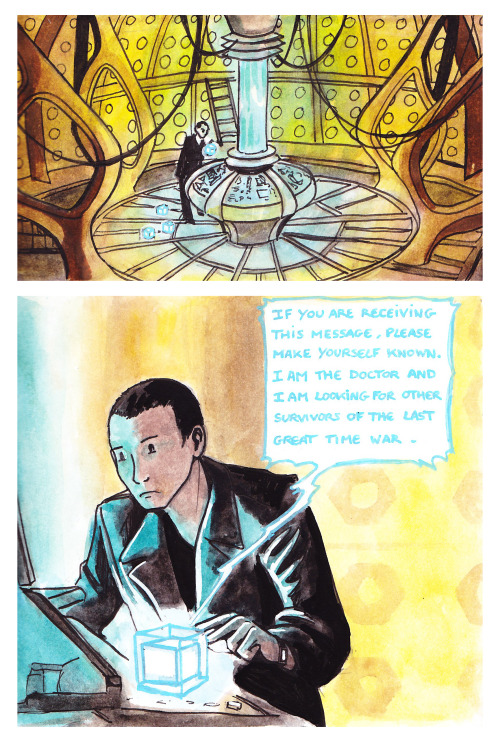
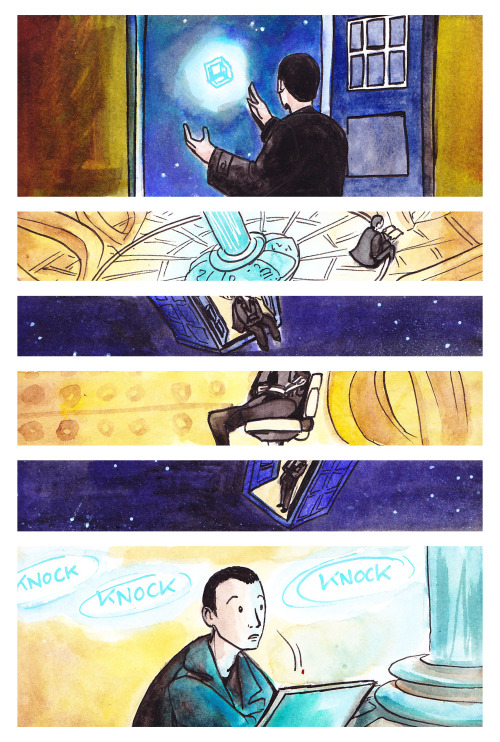
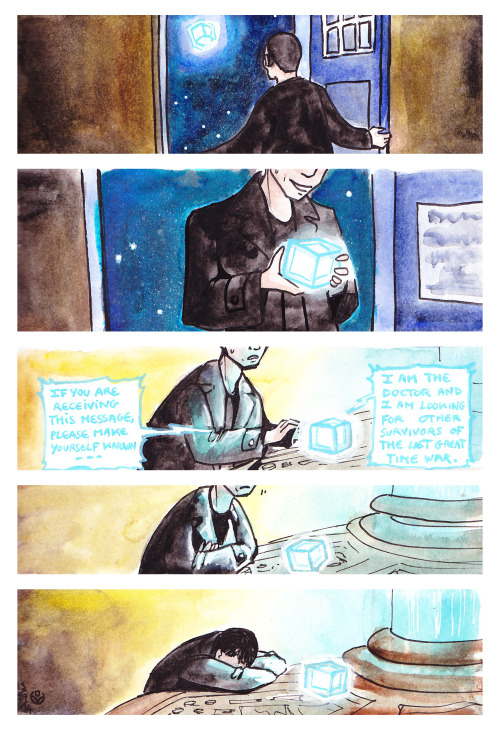
Nine trying to send a distress signal to any potential other survivor of the Time War. That’s not a good idea.
Inspired (a couple of months ago) by this picture made by this user on DA.
so I got into grad school today with my shitty 2.8 gpa and the moral of the story is reblog those good luck posts for the love of god
here’s a story about changelings
reposted from my old blog, which got deleted: Mary was a beautiful baby, sweet and affectionate, but by the time she’s three she’s turned difficult and strange, with fey moods and a stubborn mouth that screams and bites but never says mama. But her mother’s well-used to hard work with little thanks, and when the village gossips wag their tongues she just shrugs, and pulls her difficult child away from their precious, perfect blossoms, before the bites draw blood. Mary’s mother doesn’t drown her in a bucket of saltwater, and she doesn’t take up the silver knife the wife of the village priest leaves out for her one Sunday brunch. She gives her daughter yarn, instead, and instead of a rowan stake through her inhuman heart she gives her a child’s first loom, oak and ash. She lets her vicious, uncooperative fairy daughter entertain herself with games of her own devising, in as much peace and comfort as either of them can manage. Mary grows up strangely, as a strange child would, learning everything in all the wrong order, and biting a great deal more than she should. But she also learns to weave, and takes to it with a grand passion. Soon enough she knows more than her mother–which isn’t all that much–and is striking out into unknown territory, turning out odd new knots and weaves, patterns as complex as spiderwebs and spellrings. “Aren’t you clever,” her mother says, of her work, and leaves her to her wool and flax and whatnot. Mary’s not biting anymore, and she smiles more than she frowns, and that’s about as much, her mother figures, as anyone should hope for from their child. Mary still cries sometimes, when the other girls reject her for her strange graces, her odd slow way of talking, her restless reaching fluttering hands that have learned to spin but never to settle. The other girls call her freak, witchblood, hobgoblin. “I don’t remember girls being quite so stupid when I was that age,” her mother says, brushing Mary’s hair smooth and steady like they’ve both learned to enjoy, smooth as a skein of silk. “Time was, you knew not to insult anyone you might need to flatter later. ‘Specially when you don’t know if they’re going to grow wings or horns or whatnot. Serve ‘em all right if you ever figure out curses.” “I want to go back,” Mary says. “I want to go home, to where I came from, where there’s people like me. If I’m a fairy’s child I should be in fairyland, and no one would call me a freak.” “Aye, well, I’d miss you though,” her mother says. “And I expect there’s stupid folk everywhere, even in fairyland. Cruel folk, too. You just have to make the best of things where you are, being my child instead.” Mary learns to read well enough, in between the weaving, especially when her mother tracks down the traveling booktraders and comes home with slim, precious manuals on dyes and stains and mordants, on pigments and patterns, diagrams too arcane for her own eyes but which make her daughter’s eyes shine. “We need an herb garden,” her daughter says, hands busy, flipping from page to page, pulling on her hair, twisting in her skirt, itching for a project. “Yarrow, and madder, and woad and weld…” “Well, start digging,” her mother says. “Won’t do you a harm to get out of the house now’n then.” Mary doesn’t like dirt but she’s learned determination well enough from her mother. She digs and digs, and plants what she’s given, and the first year doesn’t turn out so well but the second’s better, and by the third a cauldron’s always simmering something over the fire, and Mary’s taking in orders from girls five years older or more, turning out vivid bolts and spools and skeins of red and gold and blue, restless fingers dancing like they’ve summoned down the rainbow. Her mother figures she probably has. “Just as well you never got the hang of curses,” she says, admiring her bright new skirts. “I like this sort of trick a lot better.” Mary smiles, rocking back and forth on her heels, fingers already fluttering to find the next project. She finally grows up tall and fair, if a bit stooped and squinty, and time and age seem to calm her unhappy mouth about as well as it does for human children. Word gets around she never lies or breaks a bargain, and if the first seems odd for a fairy’s child then the second one seems fit enough. The undyed stacks of taken orders grow taller, the dyed lots of filled orders grow brighter, the loom in the corner for Mary’s own creations grows stranger and more complex. Mary’s hands callus just like her mother’s, become as strong and tough and smooth as the oak and ash of her needles and frames, though they never fall still. “Do you ever wonder what your real daughter would be like?” the priest’s wife asks, once. Mary’s mother snorts. “She wouldn’t be worth a damn at weaving,” she says. “Lord knows I never was. No, I’ll keep what I’ve been given and thank the givers kindly. It was a fair enough trade for me. Good day, ma’am.” Mary brings her mother sweet chamomile tea, that night, and a warm shawl in all the colors of a garden, and a hairbrush. In the morning, the priest’s son comes round, with payment for his mother’s pretty new dress and a shy smile just for Mary. He thinks her hair is nice, and her hands are even nicer, vibrant in their strength and skill and endless motion. They all live happily ever after. * Here’s another story: Gregor grew fast, even for a boy, grew tall and big and healthy and began shoving his older siblings around early. He was blunt and strange and flew into rages over odd things, over the taste of his porridge or the scratch of his shirt, over the sound of rain hammering on the roof, over being touched when he didn’t expect it and sometimes even when he did. He never wore shoes if he could help it and he could tell you the number of nails in the floorboards without looking, and his favorite thing was to sit in the pantry and run his hands through the bags of dry barley and corn and oat. Considering as how he had fists like a young ox by the time he was five, his family left him to it. “He’s a changeling,” his father said to his wife, expecting an argument, but men are often the last to know anything about their children, and his wife only shrugged and nodded, like the matter was already settled, and that was that. They didn’t bind Gregor in iron and leave him in the woods for his own kind to take back. They didn’t dig him a grave and load him into it early. They worked out what made Gregor angry, in much the same way they figured out the personal constellations of emotion for each of their other sons, and when spring came, Gregor’s father taught him about sprouts, and when autumn came, Gregor’s father taught him about sheaves. Meanwhile his mother didn’t mind his quiet company around the house, the way he always knew where she’d left the kettle, or the mending, because she was forgetful and he never missed a detail. “Pity you’re not a girl, you’d never drop a stitch of knitting,” she tells Gregor, in the winter, watching him shell peas. His brothers wrestle and yell before the hearth fire, but her fairy child just works quietly, turning peas by their threes and fours into the bowl. “You know exactly how many you’ve got there, don’t you?” she says. “Six hundred and thirteen,” he says, in his quiet, precise way. His mother says “Very good,” and never says Pity you’re not human. He smiles just like one, if not for quite the same reasons. The next autumn he’s seven, a lucky number that pleases him immensely, and his father takes him along to the mill with the grain. “What you got there?” The miller asks them. “Sixty measures of Prince barley, thirty two measures of Hare’s Ear corn, and eighteen of Abernathy Blue Slate oats,” Gregor says. “Total weight is three hundred fifty pounds, or near enough. Our horse is named Madam. The wagon doesn’t have a name. I’m Gregor.” “My son,” his father says. “The changeling one.” “Bit sharper’n your others, ain’t he?” the miller says, and his father laughs. Gregor feels proud and excited and shy, and it dries up all his words, sticks them in his throat. The mill is overwhelming, but the miller is kind, and tells him the name of each and every part when he points at it, and the names of all the grain in all the bags waiting for him to get to them. “Didn’t know the fair folk were much for machinery,” the miller says. Gregor shrugs. “I like seeds,” he says, each word shelled out with careful concentration. “And names. And numbers.” “Aye, well. Suppose that’d do it. Want t’help me load up the grist?” They leave the grain with the miller, who tells Gregor’s father to bring him back ‘round when he comes to pick up the cornflour and cracked barley and rolled oats. Gregor falls asleep in the nameless wagon on the way back, and when he wakes up he goes right back to the pantry, where the rest of the seeds are left, and he runs his hands through the shifting, soothing textures and thinks about turning wheels, about windspeed and counterweights. When he’s twelve–another lucky number–he goes to live in the mill with the miller, and he never leaves, and he lives happily ever after. * Here’s another: James is a small boy who likes animals much more than people, which doesn’t bother his parents overmuch, as someone needs to watch the sheep and make the sheepdogs mind. James learns the whistles and calls along with the lambs and puppies, and by the time he’s six he’s out all day, tending to the flock. His dad gives him a knife and his mom gives him a knapsack, and the sheepdogs give him doggy kisses and the sheep don’t give him too much trouble, considering. “It’s not right for a boy to have so few complaints,” his mother says, once, when he’s about eight. “Probably ain’t right for his parents to have so few complaints about their boy, neither,” his dad says. That’s about the end of it. James’ parents aren’t very talkative, either. They live the routines of a farm, up at dawn and down by dusk, clucking softly to the chickens and calling harshly to the goats, and James grows up slow but happy. When James is eleven, he’s sent to school, because he’s going to be a man and a man should know his numbers. He gets in fights for the first time in his life, unused to peers with two legs and loud mouths and quick fists. He doesn’t like the feel of slate and chalk against his fingers, or the harsh bite of a wooden bench against his legs. He doesn’t like the rules: rules for math, rules for meals, rules for sitting down and speaking when you’re spoken to and wearing shoes all day and sitting under a low ceiling in a crowded room with no sheep or sheepdogs. Not even a puppy. But his teacher is a good woman, patient and experienced, and James isn’t the first miserable, rocking, kicking, crying lost lamb ever handed into her care. She herds the other boys away from him, when she can, and lets him sit in the corner by the door, and have a soft rag to hold his slate and chalk with, so they don’t gnaw so dryly at his fingers. James learns his numbers well enough, eventually, but he also learns with the abruptness of any lamb taking their first few steps–tottering straight into a gallop–to read. Familiar with the sort of things a strange boy needs to know, his teacher gives him myths and legends and fairytales, and steps back. James reads about Arthur and Morgana, about Hercules and Odysseus, about djinni and banshee and brownies and bargains and quests and how sometimes, something that looks human is left to try and stumble along in the humans’ world, step by uncertain step, as best they can. James never comes to enjoy writing. He learns to talk, instead, full tilt, a leaping joyous gambol, and after a time no one wants to hit him anymore. The other boys sit next to him, instead, with their mouths closed, and their hands quiet on their knees. “Let’s hear from James,” the men at the alehouse say, years later, when he’s become a man who still spends more time with sheep than anyone else, but who always comes back into town with something grand waiting for his friends on his tongue. “What’ve you got for us tonight, eh?” James finishes his pint, and stands up, and says, “Here’s a story about changelings.”
“You clap for us now.”
— Britain’s immigrants and children of immigrants who are key workers
Credit: created by Sachini Imbuldeniya
Listen, I liked Sanders. But the Supreme Court is the only thing I care about right now.
If you vote for anyone that isn't the Democrat nominee, we are looking at a 7-2 right-wing SCOTUS. For how long? 30-40 YEARS.
RBG is 87. Breyer is 81. Chances of them making it to 2024 are not great.
For the record, I think this system is FUCKED and this isn't how SCOTUS composition should be decided, but it is how it is right now.
If you care about the rights of women, of minorities of any kind, you really need to vote for the democrat nominee. No third parties or write ins. No abstaining. And for crying out loud, no assuming that Trump won't win even if you don't vote. VOTE BLUE.
honestly tho that scene in the incredibles where mr. incredible sees the names of all the old super heroes that used to be his friends / that he knew from Back in the Day and how every one of them has been killed by syndrome is such a chilling scene for so many reasons
like for one, everyone he knew is dead at this point and has been killed on the same island he’s at now and two, its heartbreaking bc that means that almost every hero wanted to try out being a hero again despite the laws against it and wanted to try and help someone out and relive their glory days, only to be straight up murdered like fuck that scene is just so fuckin intense
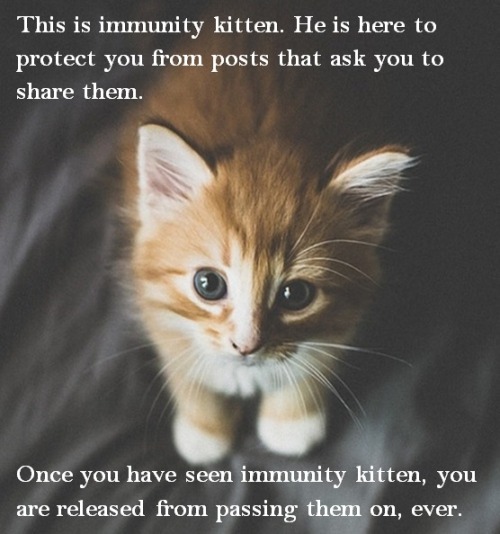
1. Any calls you are seeing for a #DemExit2020 over Sanders losing are likely being amplified by Russian actors; remember, they want Trump in office and the US in disarray. They're all about dividing us and keeping us at each other's throats.
2. Biden, while scum, will be FAR easier to shove left than Trump, *especially* if we retake the Senate (or did you forget about downticket races...?) *We have a chance to get rid of Mitch McConnell this year*, but that only happens if you vote.
3. This is about harm reduction. Is Biden scum? Yes. Will he do far, far, FAR less damage than Trump? *YES*. This isn't just about the Presidency, it's about the Nazi troglodytes in the Cabinet. It's about keeping another anti-abortion justice out of the Supreme Court (and letting poor RBG rest).
4. Primary wise, we aren't out of the woods yet, go vote anyway, and remember your downticket races. If you are Sanders or were Warren, you have chances at putting in super leftists locally and into the Senate. Take them. Remember: Congress going blue in 2018 has made a HUGE difference in harm reduction. Remember the power AOC and Ilhan Omar have wielded, and now imagine what they could do with a democratic Senate. (Imagine Senate Majority Leader Elizabeth Warren!)
5. Did I mention downticket races? I'll say it again. The *Senate* chooses to convict on an Impeachment. If we had a Democratic Senate, Trump would be *gone*.
(In case anyone accuses me of being a Biden stan, I am a long time Sanders supporter who also thinks Elizabeth Warren is cool & likes them both a lot. I think Biden sucks, but he's not *actively* trying to get me or my loved ones killed. Trump *is*.)
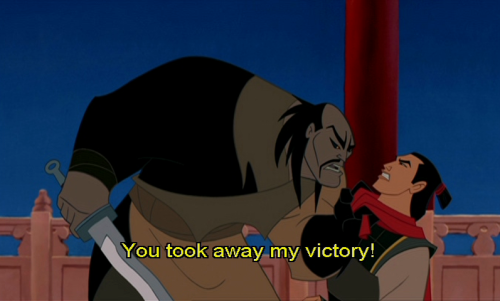

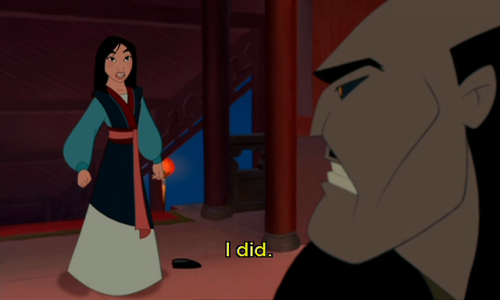











a lot of us are working from home now, pretty abruptly. it’s hard, and especially if you’re like me, a sudden lack of structure coupled with really harsh self-expectations/a tense or unforgiving temperament is really challenging.
i started working from home fulltime this year, and my stop it series is a set of doodled observations i’ve made about the obstacles, bad habits, and unhealthy expectations i’ve found myself running into as i adjust. i hope maybe they can be helpful to other people too!
please check out the linked tag bc i have further observations/clarifications on these in the captions of the individual posts, but i figured it’d be good to finally dump all the notes i’ve made so far into one place.
and a final note on what i’ve run into as i get used to working from home: it is a really really difficult balance for me, bc on one hand i really NEED a lot of self-discipline and productivity assists to get things done and make enough money to survive. but on the other hand, a loooooot of productivity advice/motivation/tools out there are really heavily keyed into capitalism and the concept of productivity as self-worth, and it’s easier than you think to slide into destructive thinking because you’re trying to keep yourself on track. do what you have to do, but make sure that the measures you take to try to make home employment work and get things done are always abt helping yourself do what you need to do without strife, not wringing as much work out of yourself as possible.










The number of clueless fucking "leftists" already falling for the exact same fucking "don't vote at all if the candidate isn't left enough" garbage (that was liiiiiiterally pushed by Russian trolls last election) is ASTOUNDING.
You vote as progressive as possible every single election. Every time. Whether your choices are SUPER progressive, or kinda progressive, or just 'less evil than the other guy' you vote for your best available option every time.
Refusing to vote helps no one but the most evil option.
Push for progressive candidates. Campaign for them. Donate to them. Support them. Vote for them. And always always always vote for the best option on the ballot.
I feel like 99% of the “don’t vote for Biden because he’s a horrible person” (followed by a list) posts are not actually meant to promote Bernie Sanders. They are meant to keep you from voting in this year’s election, so Trump has a better chance at winning again.
The Russians have made it clear that their online campaigns this time around support Bernie Sanders - not because they want him to win, but because they want his supporters to feel as if it would be morally wrong to participate in the election, in case Bernie is not chosen as the Democratic candidate. They also know that the Bernie supporters are vulnerable to this kind of emotional manipulation.
Joe Biden may have many flaws - I’d prefer Bernie myself - but if it comes down to a Biden candidacy, please make sure to give him your vote. No ideology is important enough to risk another four years of Trump. And none of the flaws Biden doubtlessly has comes anywhere close to the ticking time bomb that Trump is in the White House.
Please consider this, especially if you’re privileged enough to make your choice with purely ideological considerations in mind.
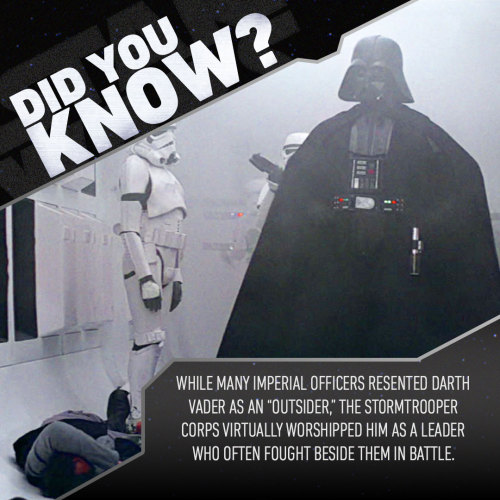
Popular with the troops.
Dear Neil, I am a horrible person. How to be kinder, please?
Sometimes I suspect we are all horrible people. Or at least, we are human people. Same thing. We are impatient, judgmental, irritating and irritated, grumpy, easily offended and the rest of it.
So how to be kinder if it doesn’t come naturally?
Fake it.
Fake it a little bit at a time.
Because there isn’t actually any difference between doing something nice for someone because you are naturally saintly and perfect, and doing something nice for someone because you are secretly demonic and trying to cover it up. It’s still an act of kindness either way, and you still made their lives better.
Smile at people. Say hullo. Ask about their lives. Remember what they’ve told you about their lives. Do small things to try and help them. (They will not know you are horrible, do not worry. They will just perceive that you are helping.)
Give people the benefit of the doubt. Remember that it’s more often stupidity to blame than evil, that everyone can screw up (including you) and what’s important is learning from that.
Think “What would an actually kind person do now?” – and do that. Don’t beat yourself up when you fail. Just be as kind to yourself as you will be to others – even if you have to fake that.
And good luck.
Hey do y'all fucks remember two years ago when just before the election all these “don’t vote both parties are bad” or “vote independent!” Posts were going around and then Trump won and now two weeks before midterms there’s all these “don’t bother voting, revolution is the only way!” And “your vote isn’t gonna matter and is an ineffective way to protest” posts are going around? Yeah knock that shit right the fuck off, don’t fall for it and get your ass to the polls, we are not doing this again.
if biden wins the nomination it is not the end of the world. we just focus on getting him in office and getting more progressive senators and reps in office so the things we want done will still get done. we need to up the energy instead of letting it slide away. we CANNOT give up!!!! the lack of enthusiasm for hillary is how we lost last time. we may not be happy about biden but fake it til u make it u know?
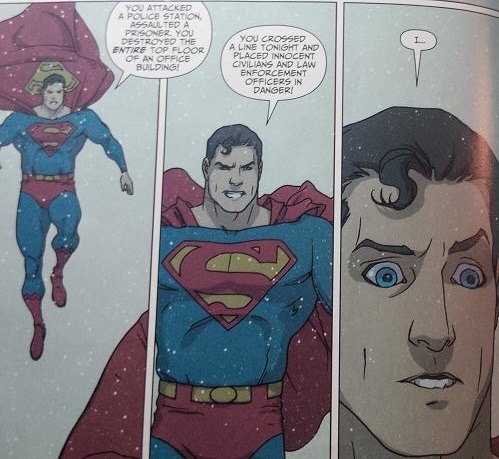



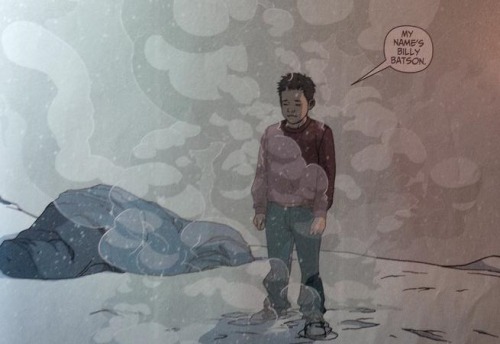

Oh Billy, you look so small right there…

Where do you get your modern war and foreign policy news? Trying to figure out what's happening in with Turkey and Russia from a a strategic point of view but I can only find pieces from the big news outlets bogged down with unrelated politics and iffy knowledge on the subject.
In no particular order:
Foreign Policy, Foreign Affairs, Defense One, The Cipher Brief, Brookings, RAND, Center for New American Security, Brookings, War on the Rocks, The Strategy Bridge, The Diplomat, School of Advanced International Studies, The Soufan Center, Divergent Opinions podcast, among others. Some of those require subscriptions, some do not. You might also want to look for the experts that are employed in places like RAND or Brookings for the AOR you’re interested in.
Thanks for the question, Luke.
SomethingLikeALawyer, Hand of the King
and speaking of Detritus’ character development:
throughout the books Detritus is shown as more and more smart, I mean compare the one in Guards! Guards! with the one from Thud! the difference is staggering.
now, this can be attributed to two things:
1) Cuddy’s helmet, which isn’t mentioned after Jingo, i think, but this can just be taken to mean that it just became normal, like the Librarian being an ape, no one notices it any more, but given the fact that the narrative mentions how bothered Detritus is by heat, and makes no mention of the helmet, i don’t think that’s it*, or
2) shockingly, when you take a member of a vilified, exploited social group (’you were chained to a wall like a guard dog when i first met you’, said Vimes, and ‘I had the stables cleaned out for your trolls’, said Bonnie or Bobbie or whatever her name was) and put them in an encouraging, supportive, hell, i’d even say loving environment, and than proceed to treat them respect, openly, actively condemn discrimination against them, and trust them with authority, they actually raise to the task at hand and start showing what they’re actually capable of.
After all, Detritus, Mended Drum splatter, doesn’t really need to think much, and even if he did, what’s the point? Who cares what/if a troll thinks?
but Sergeant Detritus of the Ankh-Morpork City Watch? Head of the anti-drug unit? Leader of the troll youth programme? Most senior troll officer in the Watch? Well, there are so many people counting on him, people who value his opinion, he just needs to be smart, doesn’t he?
Also, when you take that into consideration, like, is it any wonder that he is so invested in that youth programme? That he is such a mother hen? After all, look what an opportunity did for him, and he’s hardly the sharpest knife in the drawer.**
*but like, it would have been nice if they remembered Cuddy existed at least once in a while, I mean Cheery is amazing, but you can have more than one of a species with a significant role in a book, also, i do think that Cuddy left a mark on Detritus that is absolutely never mentioned again, and that’s not right.
**another parallel Thud! makes between Vimes and him.
God, but the entire “Watch House Riots” sequence in Night Watch is such an excellent lesson in not just how to de-escalate but the importance of de-escalation. The way Vimes insists upon members of the “mob” coming in and watching the surgeon care for the injured man, the insistence on two copies of Lawn’s statement about what happened, the way he made sure to humanize the officers and made good and damn sure that none of them had a weapon – that he did not have a weapon, nobody could say he had a weapon.
Because this was a delicate situation, and it was up to him – the present person of authority – to ensure that the situation did not turn into a riot. It wasn’t up to the untrained civilians, it wasn’t up to the green newbies who didn’t know what they were doing, it wasn’t up to anyone above him. It was on him, to look at the crowd and prevent a riot from breaking out.
Everywhere else, you got people reacting, people panicking, people acting in fear and making things worse and getting people killed – but at Treacle Mine Road, the doors were open and the lights were on and nobody was armed and everything was above-board and the only person who got hurt was a self-inflicted injury he made a full recovery from.
I just… I think that’s such an important sequence, and it – almost more than any of Vimes’s other Moments of Awesome – really shows just why Sam Vimes is such a good policeman, even more than just a good man.
it’s been said before, of course, but i just love the scene at the end of guards! guards! where the men are offered a reward, and it’s just… vimes hadn’t even considered it, and as to the others – well, vetinari calls it a petty wage increase and a domestic utensil. and a dart board. a hogswatch present, basically, and a yearly raise.
the sort of thing you get for being a decent employee of a boss who vaguely appreciates you: five extra dollars a month, and a dart board. oh, and we’ll replace the lost kettle.
vetinari expected them to ask for a reward that matched the heroism of their deeds, and was completely taken-aback by the pettiness of their request, but that’s the point: they did ask for a reward that matched, to them, the heroism of their deeds. because they weren’t Heroes. they were just some guards who thought it was wrong that a fine lady was going to be sacrificed. who believed that the city wouldn’t stand for feeding one of their own to a dragon. who, when left without supervision or leadership, said well we might as well try and got on top of a distillery to shoot an arrow in a million-to-one chance that maybe they could do something about it.
and a lot of that is carrot’s inspiration, but it’s also worth noting that colon and nobby are repeatedly shown to be the quintessential men of the street. in later books, vimes asks them how they feel and what they think to get an idea of how the city is reacting to the events at-hand, because they represent the common people of ankh-morpork.
and these two common people, out of shape and cowardly and bumbling, just a couple of guys – when the new recruit says it didn’t ought to be like this, and says, what are we gonna do next?
these two common people say, well what the hell, let’s give it a try. the city, the people, with no one left on their side but themselves and the dragon crowned triumphant, look to one another and decide to try.
and to them, that isn’t heroism, because it’s… just common. they’re just people. they’re just doing what people do.
The Patrician glanced again at Vimes’s impassive face, then looked back at the rank.
“That’s it?” he said.
Nobby whispered in Colon’s ear and then darted back. The sweating sergeant gripped his helmet as though it was the only real thing in the world.
“There was another thing, your reverence,” he said.
“Ah.” The Patrician smiled knowingly.
“There’s the kettle. It wasn’t much good anyway, and then Errol et it. It was nearly two dollars.” He swallowed. “We could do with a new kettle, if it’s all the same, your lordship.”
The Patrician leaned forward, gripping the arms of his chair.
“I want to be clear about this,” he said coldly. “Are we to believe that you are asking for a petty wage increase and a domestic utensil?”
Carrot whispered in Colon’s other ear.
Colon turned two bulging, watery-rimmed eyes to the dignitaries. The rim of his helmet was passing through his fingers like a millwheel.
“Well,” he began, “sometimes, we thought, you know, when we has our dinner break, or when it’s quiet, like, at the end of a watch as it may be, and we want to relax a bit, you know, wind down…” His voice trailed away.
“Yes?”
Colon took a deep breath.
“I suppose a dartboard would be out of the question–?”
-Guards! Guards! by Terry Pratchett

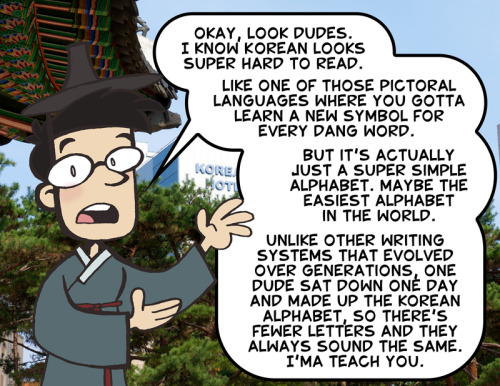
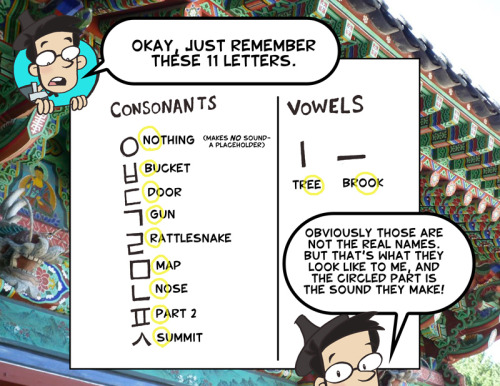
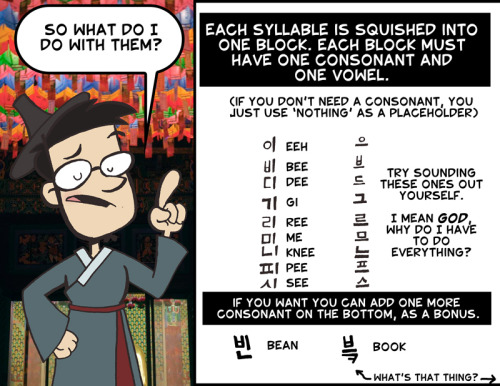

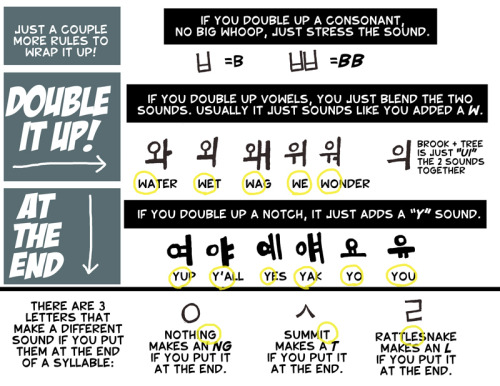
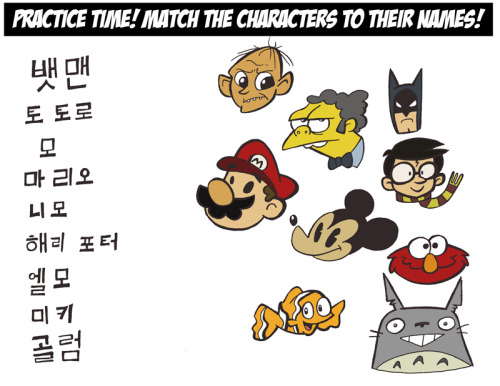
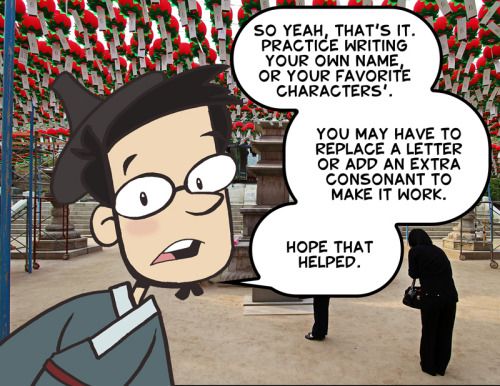
the maple leafs injured both of the hurricanes goalies so they put their fucking zamboni driver in the net LMAO